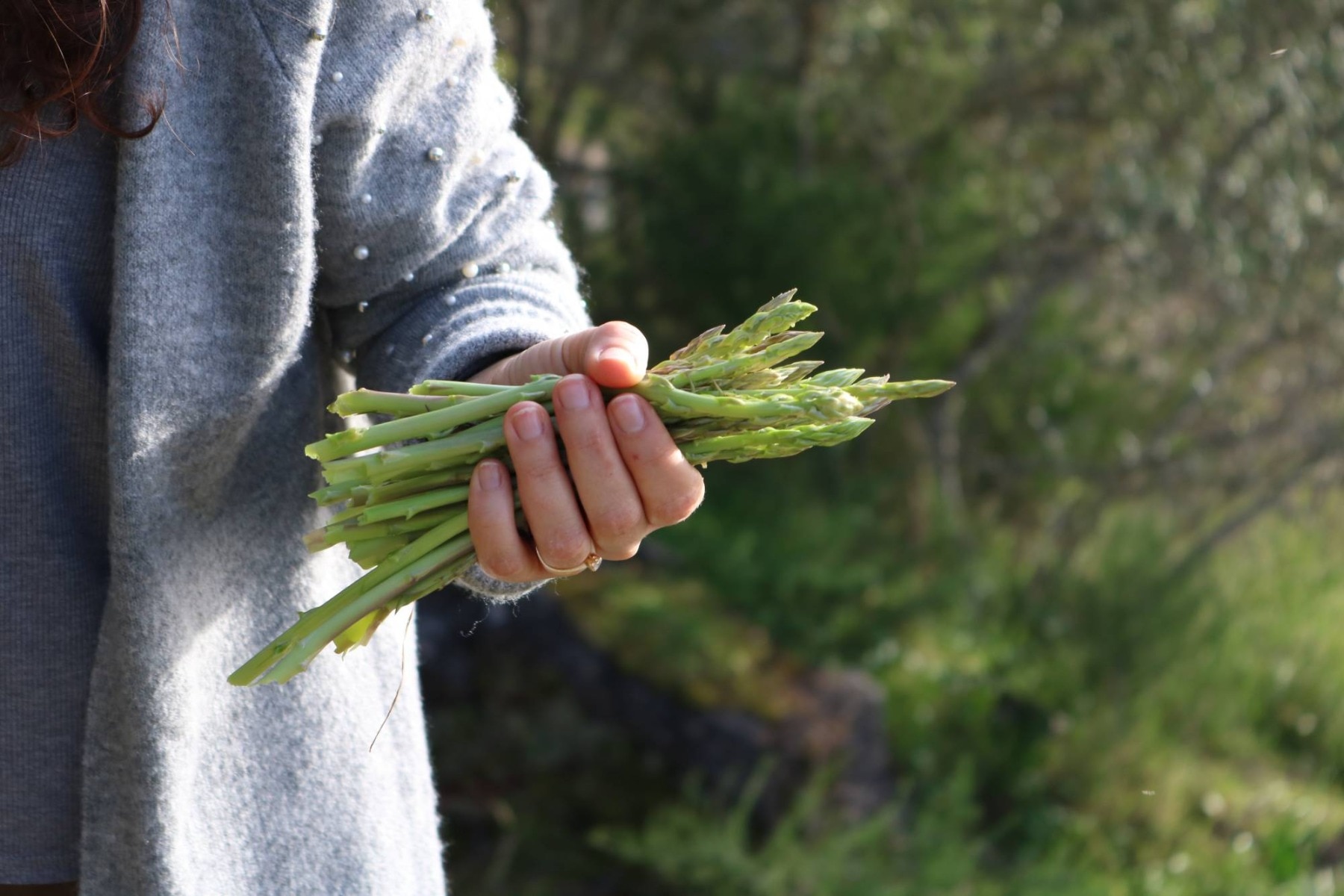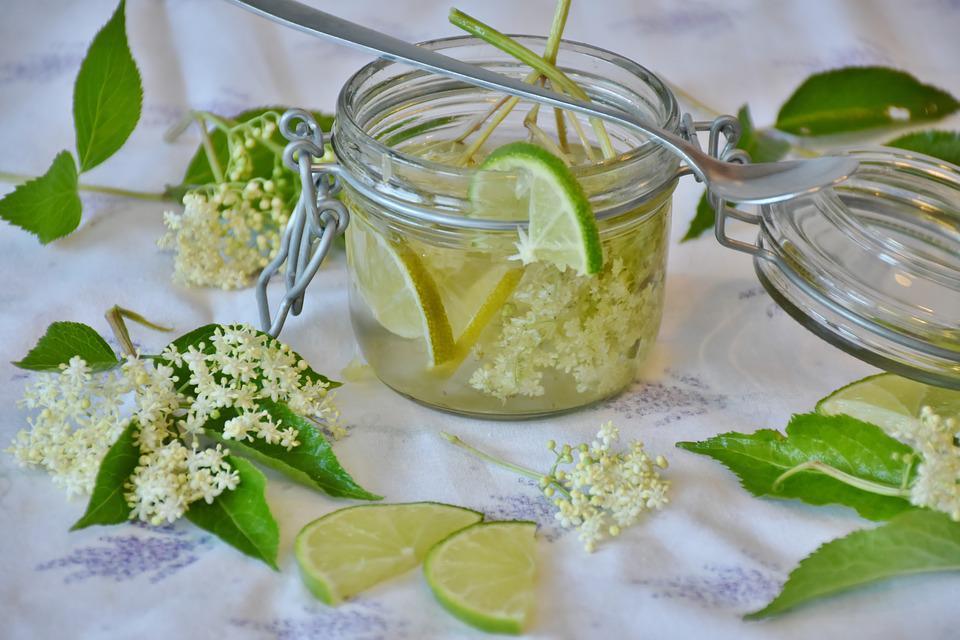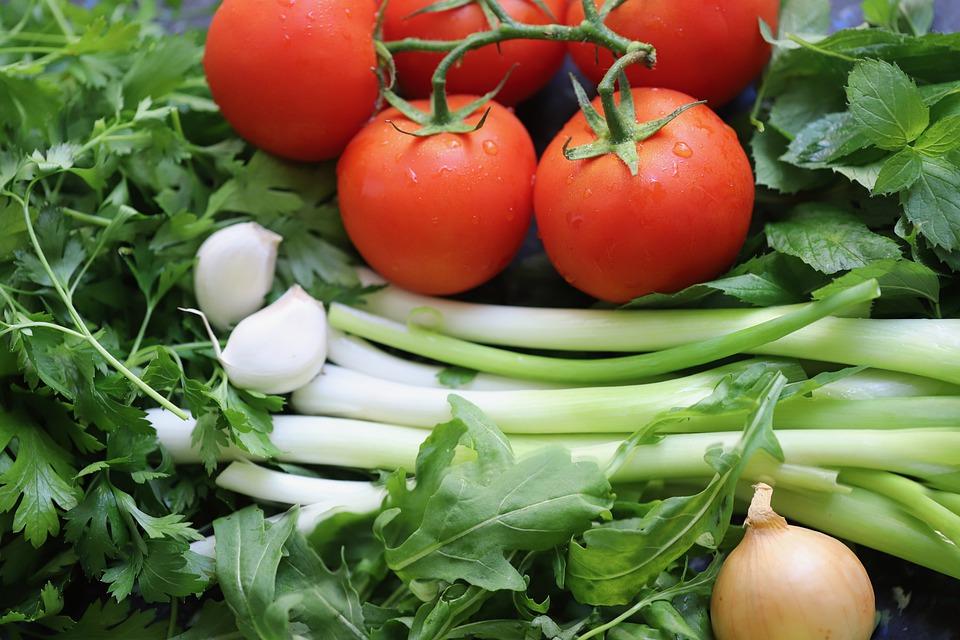We don't know about you, but we’re excited for Spring to arrive! There’s something about the feeling of the warmer air, the longer days, and the bright colours of beautiful flowers and trees that make us happy. But amid all this excitement, you might forget to pay attention to one important thing: seasonal food.
Spring is a great time of year for fresh produce, thanks to the longer days and shorter nights. And as we all aim to make sustainable choices to protect our planet, what better way to reduce your carbon footprint than to eat local, seasonal fruits and vegetables?
If you’re already eating your way through the delicious produce from the previous seasons, then you’re definitely on the right track towards sustainability! However, if you’ve been finding it hard to cook with seasonal produce all year round, this article will be useful for helping you make the right changes.
So, without further ado: here are a few locally grown seasonal fruits and veggies for your dinner table this spring...
Artichoke: You can buy pre-cooked artichoke hearts in cans, but it’s a good idea to try cooking them fresh. The leaves have multiple health benefits, including a high content of vitamins C and K, as well as an anti-inflammatory effect. But be careful when cooking them: they can easily be over-boiled and bitter.

Asparagus: The grassy shoots of this fibrous vegetable are perfect for making salads, stir-fries, and omelettes. The best way to pick it is when it’s thin and tender, just after flowering has begun. It’s a great source of vitamins A and K, and can help lower cholesterol when eaten regularly.
Beetroot: We typically eat this bright red vegetable raw. It helps keep your hair, skin and nails healthy, as well as keeping your blood pressure and heart rate in check. It also has a high content of beta-carotene, which is converted into vitamin A when eaten, which is then absorbed by our bodies.
Chicory: This is a perennial wild herb that can be found in almost any part of the world. It’s a wonderful seasonal veggie that can also help boost immunity, support your weight loss journey, and improve your gut health!
Chillies: As the clouds make way for sunshine, why not turn up the heat? Chillies are a member of the Nightshade family and one of the most widely consumed vegetables in the world. While hotness is one thing, chillies can also help to fight infection and boost immunity.

Elderflowers: You can eat the flowers of this perennial wild herb raw or cooked (or add them to your bank holiday G&Ts!) They have a very mild and refreshing taste, which makes them great in salads and with eggs. People also use them for various medicinal purposes, including helping reduce runny noses and acting as an anti-inflammatory.
Marrow: This vegetable comes straight from the ground and has a sweet flavour that works great for curries and soups. You can also eat it raw, or roast it whole. It’s got a high water content and helps our intestines to regenerate new cells, as well as reducing inflammation.
Radishes: You can use radishes to make a tasty salad or a spicy pickle. It’s great for digestion and can help lower your blood pressure. It also keeps you looking youthful by helping your skin develop collagen.
Rhubarb: It’s time to wake up and smell the pie! Rhubarb has a tangy tart flavour that makes it great in desserts and as an ingredient in some savoury dishes too. It can also help relieve heartburn and boost the growth of new blood vessels and stop bleeding, thanks to its almost magical abilities as an anti-coagulant.
Rocket: A mild and slightly bitter lettuce with a peppery aroma, great with tuna or chicken. It’s another great source of vitamins C and K, so can promote a healthy heart, bones and skin.
Samphire: We usually find this herb in coastal areas of the world. It has a wonderfully nutty flavour, along with being packed with vitamins A and C and other healthy minerals like iron. It’s great in salads or as a garnish for fish and meat dishes.
Sorrel: You can buy this leafy herb as whole leaves, chopped into salads, or made into a refreshing drink. It’s an excellent source of vitamins A and C, which help keep your immune system in good working order and help fight inflammation. It can also help to improve your eyesight.
Spinach: It's no wonder Popeye is this green leafy veggie's biggest fan, as it contains a substantial amount of iron. It’s also rich in vitamin A and C, as well as having anti-inflammatory properties. You can eat spinach raw or cooked, and it's a great addition to stir-fries and salads.

Spring Onions: This is probably the most familiar of all the seasonal veggies, especially in delicious salads. It contains plenty of beta-carotene and vitamin A, which is good news for healthy skin, hair and nails. You can even add them to your bank holiday brunch eggs.
Strawberries: A Wimbledon favourite! The flavour of fresh, ripe strawberries is incomparable. You can eat them raw or add them to your salads for a sweet boost. Strawberries help to give children their healthy skin and strong teeth and can also reduce the risk of kidney stones by reducing calcium loss.
Watercress: It works great in salads and makes an excellent addition to burgers and wraps, or you can even add it to soups. It contains a very high content of vitamins A and C, as well as iron, magnesium, calcium, zinc, and calcium.